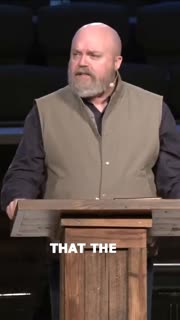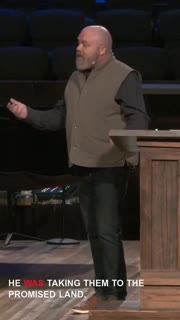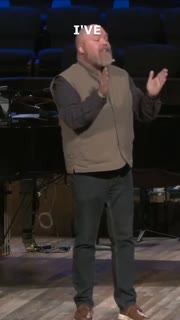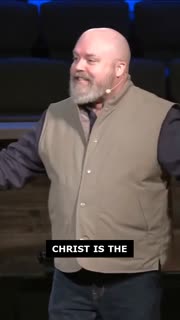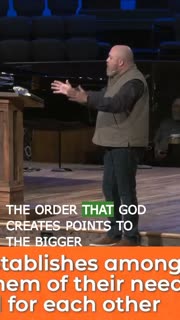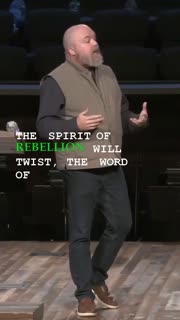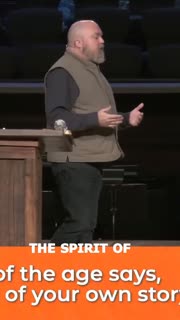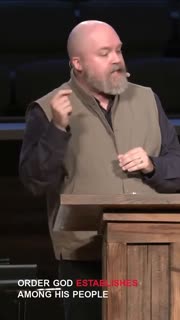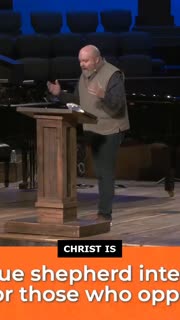Lessons from Korah: Rebellion, Intercession, and Transformation
Devotional
Sermon Summary
Bible Study Guide
Sermon Clips
### Quotes for Outreach
1. "The good news is that the wilderness does not go on forever. Praise God, right? And some of you might be thinking, does that mean this series will not go on? That's correct. This series will not go on forever. After today we have just a couple more weeks and then we'll be shifting gears into something different. But keep in mind as we're going through this that Israel's journey through the wilderness was not without purpose." [01:00] (32 seconds)
2. "He was taking them to the promised land, but he had to take them through the wilderness where he was able to strengthen them, forge them, shape them, make them into the people fit for promise. And that's what the wilderness series or season does for us. Whether that's you as an individual or a group or together as a church, whatever it is, it's in these moments that the Lord purges, purifies and forms us." [01:30] (30 seconds)
3. "I've got good news. You don't have to define yourself. You can discover who you are through a relationship, with Jesus and a relationship with his people. That's a lot of pressure released off you right there. It sounds good at first, but it ends up being lonely. The spirit of the age separates us from God and from each other, living for ourselves and attempting to take what God has not given us." [25:06] (30 seconds)
4. "Christ is the one who stands between the living and the dead, who stands between our own sin and rebellion and our punishment to offer atonement. Atonement means to meet, to cover. It's to cover over the sin so that he meets. He meets the hostility that is due to the sin. The English word atonement really comes from an old form of the word that means just like what it looks like. It really is three things smushed together. At-one-ment." [34:51] (34 seconds)
5. "The order that God creates points to the bigger story. The bigger story is that God sits enthroned over the cosmos and also has a plan and place for your life. That's what rebellion wants to steal from you. Rebellion wants to steal from you meaning and give you a false sense of meaning that says, I create it. But here's the thing. If you can do it, if you can make it, if you can seize it, someone can seize it from you. But if God gives it to you, no one can take it." [26:27] (35 seconds)
### Quotes for Members
1. "The spirit of rebellion will twist the word of God. Did you notice how they said, we are the Lord's people. The Hebrew there is, we are holy. So who do you think you are setting yourselves up to give us directions? Well, what's interesting is in the chapter just prior, Moses had directed them to wear tassels on their garments to remind them that they were a holy people. And God himself at Mount Sinai had said, you are a holy people." [20:16] (33 seconds)
2. "The spirit of the age, the rebellious spirit says, you are the spirit of the age. You are the creator of your own story, the sole creator. And all that matters is that you simply express who you are and we will all respect that. Well, okay, it sounds kind of nice, but here's the thing. The problem with that is is that kind of attitude, that kind of approach says you can really forget about everyone else. You can forget about generations that have gone before." [23:05] (39 seconds)
3. "The order God establishes among his people is to remind them of their need for him and for each other. See, the rebels in this story wanted to have a relationship in their own way. They wanted to take over. They didn't want the order that God had established. But the Lord knew that they needed that order because it is by following that order that they remember this. We are not our own. We are not on our own. We are not individuals running around deciding everything for ourselves." [25:31] (38 seconds)
4. "It's obvious from this story that God deals with rebellion and dissension very seriously because rebellion and dissension pull people away from God towards selfishness and that leads to death. Listen, I can't, you know, if I, there's a part of my body that becomes separated. It will die. Rebellion and dissension leads to death. That's what decomposition is. Is when you take the composure away and things begin to fall apart." [26:56] (40 seconds)
5. "Christ is the one who has made atonement for us, standing between the living and the dead. You have in this picture Aaron going into where the plague is and he stands between those who are dying of the plague and those who are living and he offers up incense to the Lord and the plague stops. It is a picture of what you see in Jesus. Ephesians chapter 5, the apostle Paul said of Christ, he is an offering who has become a sweet-smelling aroma unto the Lord." [34:07] (37 seconds)
Ask a question about this sermon
1. "The good news is that the wilderness does not go on forever. Praise God, right? And some of you might be thinking, does that mean this series will not go on? That's correct. This series will not go on forever. After today we have just a couple more weeks and then we'll be shifting gears into something different. But keep in mind as we're going through this that Israel's journey through the wilderness was not without purpose." [01:00] (32 seconds)
2. "He was taking them to the promised land, but he had to take them through the wilderness where he was able to strengthen them, forge them, shape them, make them into the people fit for promise. And that's what the wilderness series or season does for us. Whether that's you as an individual or a group or together as a church, whatever it is, it's in these moments that the Lord purges, purifies and forms us." [01:30] (30 seconds)
3. "I've got good news. You don't have to define yourself. You can discover who you are through a relationship, with Jesus and a relationship with his people. That's a lot of pressure released off you right there. It sounds good at first, but it ends up being lonely. The spirit of the age separates us from God and from each other, living for ourselves and attempting to take what God has not given us." [25:06] (30 seconds)
4. "Christ is the one who stands between the living and the dead, who stands between our own sin and rebellion and our punishment to offer atonement. Atonement means to meet, to cover. It's to cover over the sin so that he meets. He meets the hostility that is due to the sin. The English word atonement really comes from an old form of the word that means just like what it looks like. It really is three things smushed together. At-one-ment." [34:51] (34 seconds)
5. "The order that God creates points to the bigger story. The bigger story is that God sits enthroned over the cosmos and also has a plan and place for your life. That's what rebellion wants to steal from you. Rebellion wants to steal from you meaning and give you a false sense of meaning that says, I create it. But here's the thing. If you can do it, if you can make it, if you can seize it, someone can seize it from you. But if God gives it to you, no one can take it." [26:27] (35 seconds)
### Quotes for Members
1. "The spirit of rebellion will twist the word of God. Did you notice how they said, we are the Lord's people. The Hebrew there is, we are holy. So who do you think you are setting yourselves up to give us directions? Well, what's interesting is in the chapter just prior, Moses had directed them to wear tassels on their garments to remind them that they were a holy people. And God himself at Mount Sinai had said, you are a holy people." [20:16] (33 seconds)
2. "The spirit of the age, the rebellious spirit says, you are the spirit of the age. You are the creator of your own story, the sole creator. And all that matters is that you simply express who you are and we will all respect that. Well, okay, it sounds kind of nice, but here's the thing. The problem with that is is that kind of attitude, that kind of approach says you can really forget about everyone else. You can forget about generations that have gone before." [23:05] (39 seconds)
3. "The order God establishes among his people is to remind them of their need for him and for each other. See, the rebels in this story wanted to have a relationship in their own way. They wanted to take over. They didn't want the order that God had established. But the Lord knew that they needed that order because it is by following that order that they remember this. We are not our own. We are not on our own. We are not individuals running around deciding everything for ourselves." [25:31] (38 seconds)
4. "It's obvious from this story that God deals with rebellion and dissension very seriously because rebellion and dissension pull people away from God towards selfishness and that leads to death. Listen, I can't, you know, if I, there's a part of my body that becomes separated. It will die. Rebellion and dissension leads to death. That's what decomposition is. Is when you take the composure away and things begin to fall apart." [26:56] (40 seconds)
5. "Christ is the one who has made atonement for us, standing between the living and the dead. You have in this picture Aaron going into where the plague is and he stands between those who are dying of the plague and those who are living and he offers up incense to the Lord and the plague stops. It is a picture of what you see in Jesus. Ephesians chapter 5, the apostle Paul said of Christ, he is an offering who has become a sweet-smelling aroma unto the Lord." [34:07] (37 seconds)
